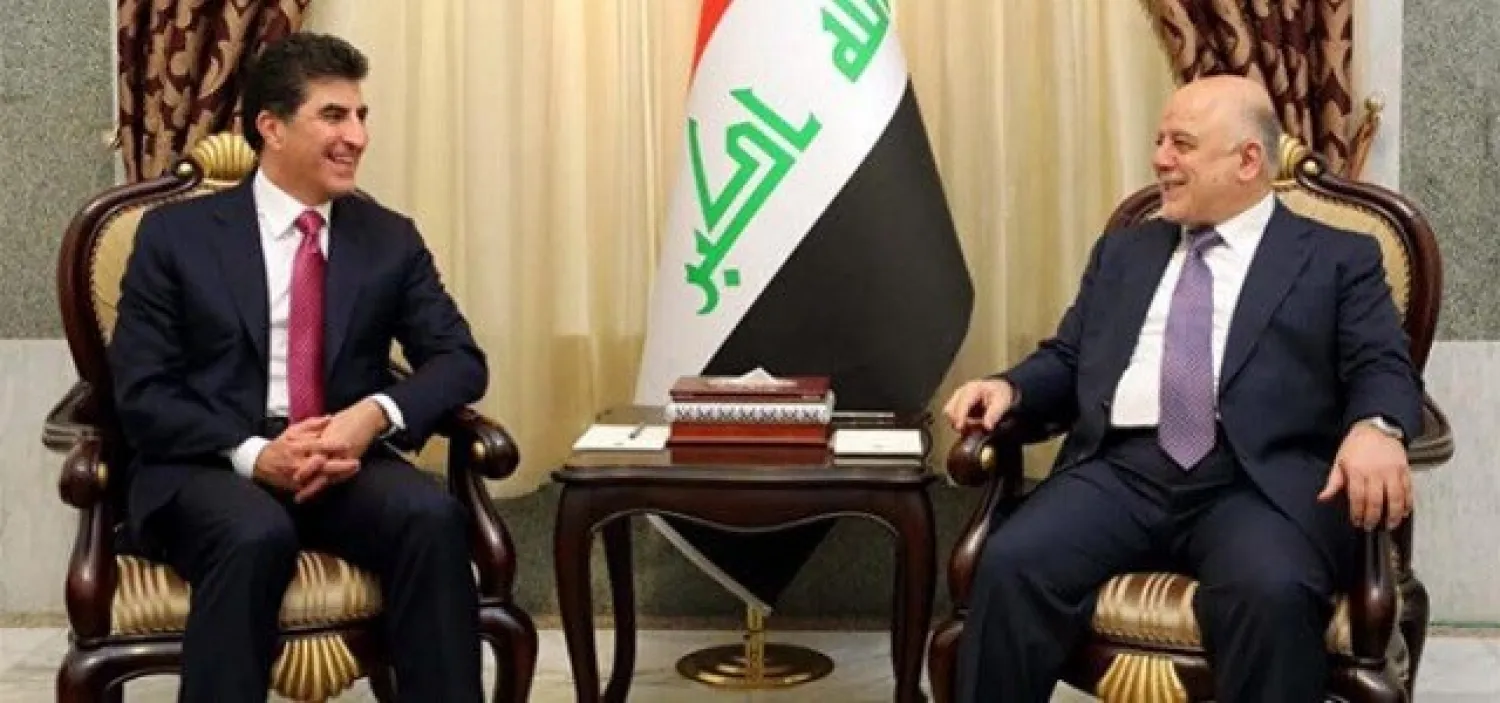Iraqi Prime Minister Haidar al-Abadi on Monday met with his Kurdish Regional Government (KRG) counterpart Nechirvan Barzani, who arrived in Baghdad on an unannounced visit.
The prime ministers discussed the political situation in the country in general and some other common issues between the Federal Government of Iraq and the KRG, a statement released by Abadi’s office said.
“The meeting reiterated the importance of continued communication and dialogue in a way that strengthens joint national work,” it indicated.
Barzani and Abadi also emphasized maintaining cooperation between Iraqi security forces and the Kurdish Peshmerga forces to eliminate any terror threats in wake of the victory against ISIS.
They also addressed ways to move forward with the formation of a new government that meets the demands of the Iraqi people and that focuses on the economy and construction and provides services and employment opportunities.
"While we have to admit that our problems in Iraq are political in the first place, the nature of the relationship between the federal government in Baghdad and the KRG in Erbil seems administrative," said Shwan Mohammed Taha, Head of Kurdistan Democratic Party’s fifth branch in Baghdad.
Taha noted that issues, such as the budget, salaries, Peshmerga and disputed areas, should be discussed according to the laws in place.
On the expected results of the visit, Taha said that the statement issued by the federal government showed the progress made on many of the joint files, stressing the need to solve issues and administrative constraints that would affect the current movement to form the largest parliamentary alliance.
When asked about the meetings held by the Kurds with different Shiite forces, Taha described all the talk on alliances or agreements as premature.
“Everyone we met discussed general principles, something which we have always heard, while we now want practical solutions for the differences between Baghdad and Erbil that would pave the way for political understanding,” he concluded.
Meanwhile, Spokesman for the Prime Minister Office Saad al-Hadithi told Asharq Al-Awsat that the meeting between Abadi and Barzani stemmed from their positions as a federal prime minister and prime minister of the region.
Prior to the recent parliamentary elections, noted the spokesman, both governments were serious in resolving several issues and various committees have been formed for that purpose. He explained, however, that the elections and the preoccupation of political blocs with a lot of issues may have hampered previous efforts to solve them, noting that the PM’s visit will put things back on the right track.









